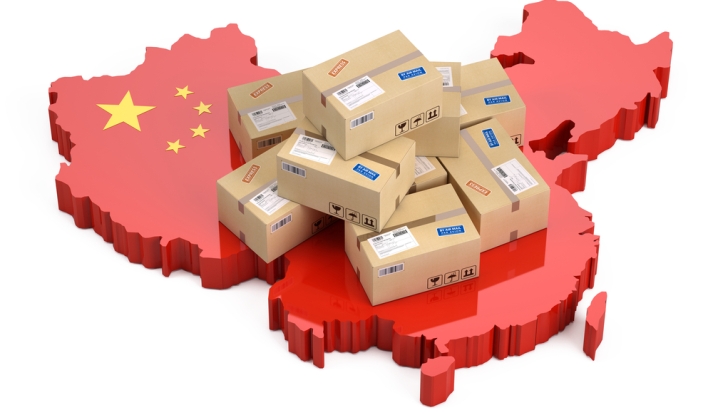
Alibaba Group-related logistics company Cainiao, formed two years ago to develop an efficient, China-wide parcel-delivery system, is on its way to achieving its goal and plans to be capable of providing next-day delivery of goods ordered from Alibaba’s onlinemarketplaces in 50 cities by the end of 2015.
Cainiao President Judy Tong today said “Cainiao has established a complete logistics network and aims to offer next-day delivery service in 50 cities by the end of the year,” up from 34 currently. Since its launch, Cainiao has partnered withthousands of logistics service providers,is establishingwarehouse and distribution centers in 12 key cities, has opened service centers in 1,200 villages and rural provinces, and has expanded international delivery to 217 countries and areas. The company even recently launched a mobile app so consumers can use smartphones to track their orders and locate nearby package pick-up points.
“The ultimate goal of Cainiao is to make it easy to deliver goods to anywhere,” Tong said, “so that parcels delivered in China can arrive in 24 hours and parcels delivered cross-border can arrive in 72 hours” instead of several days currently for China shipments and days or weeks for international orders.
Tong was speaking during Cainiao’s Open Day event, a kind of progress report on its business. Held in Hangzhou, China, the event was attended by more than 600 people including media, Alibaba employees and Cainiao’s logistics partners.
An Open Day is a good idea, considering that Cainiao is a bit of a mystery to many because of its unusual businessstructure. The company was formed as a consortium of logistics firms in 2013, driven by Alibaba Group Executive Chairman Jack Ma’s vision to foster the growth of e-commerce by making it possible to deliver goods door-to-door virtually anywhere in China within 24 hours.
There were and continue to be plenty of obstacles to Ma’s target, among them shortages of warehouse space, obsolete technology and the country’s fragmented logistics industry. China has no UPS or FedEx. The mainland’s express delivery market alone had more than 20 major players in 2013 and another 8,000 smaller ones serving mostly regional markets, according to a report from Deloitte & Touche.
Building a nationwide UPS from scratch would take many years and billions of dollars in investment. While some online shopping websites are working on proprietary delivery networks in China, they efficiently serve just a few major cities.
Instead, Alibaba opted to capitalize on the country’s existing assets by assembling a collection of logistics companies, last-mile couriers and other independent players to work together on parcel deliveries generated by Alibaba Group’s giant online marketplaces.
What was needed, as one observer put it, was the creation of “an intelligent backbone out of the current chaos”—a real-time information platform that could coordinate the shipping activities, warehouses, truck fleets and distribution centers owned by Cainiao’s co-investors and partners.
With plans to pump $16 billion into the endeavor over 5-8 years, Cainiao launched two years ago with Alibaba holding a 48 percent stake and the task of creating this intelligent backbone—a cloud-and big-data-powered system which today is fully operational, providing real-time information to logistics partners, including data such as distribution center utilization rates, route planning information and order volume forecasts.
Currently Cainiao’s network facilitates the delivery of more than 30 million packages a day purchased on Alibaba Group’s marketplaces. Yet Cainiao itself delivers no merchandise. Essentially, the company operates as a “network of networks.” Along with the information network—the connective tissue of the enterprise—there is also:
‚Ä¢ A network of delivery vehicles, warehouses and distribution centers owned by thousands of independent delivery companies and 15 strategic logistics partners. Together, these partners operate 1,800 distribution centers and more than 97,000 delivery stations, according to Cainiao. In mid-2014 more than 1.5 million delivery personnel, located in more than 600 cities in 31 provinces, were employed by the company’s partners.
• A network of more than 20,000 self-pick up spots which provide last-mile delivery and other services to consumers.
Tongsaid that this year, the company is expanding these networks outward, to international markets, and inward, to reach more areas in rural China.
On the international front, the company has established warehouses in several countries to support Alibaba Group’s cross-border e-commerce efforts. Delivery channels have been opened between China and the U.S., China and Australia, and China and South Korea in partnerships involving companies such as DHL and Shanghai YTO Express, one of China’s leading logistics companies and a Cainiaoshareholder. Alibaba Group recently took a minority stake in YTO Express.
Cainiaois also lowering costs of cross-border deliveries through special government-backed China Customs channels in cities such as Hangzhou, Guangzhou and Ningbo. By working with national post offices and other partners in several countries, Cainiao can now provide integrated logistics information that allows consumers to track information of their parcels globally.
In rural delivery, Cainaio now serves more than 1,200 villages in provinces including Ningxia, Guizhou, Jilin, Jiangxi, Fujian, Jiangsu, Zhejiang, and Guangdong. Cainiao said statistics in May showed 20 percent of parcels delivered to rural areas arrived on the day they were ordered or on the following day. Cainiao is also capableof shipping large home appliances to more than 2,800 districts and counties throughout the country—even in Tibet.
Cainiao is trying to speed parcel delivery in cities by establishing pick-up spots where consumers can collect their orders. Some 20,000 are already operating and the company plans more on college campuses, in communities by partnering with real-estate companies like Greentown and Vanke, and in convenience stores.
During the Open Day event, Tong stressed that providing fast, reliable service was crucial to the company’s success. She urged delivery companies to avoid engaging in price wars thatcould damage the industry.
“Logistics service providers are scattered and fragmented in China,” Tong said.”Since they can’t compete on service, they compete on price, resulting in terribleservice and unstable networks. Cainiao is changing this trend from competing on price to competing on service.”
Also crucial to Cainiao’s plans, company officials said,is the use of cloud computing and big data tosupply its partnerswith continuous feedback on their performance that can help them improve operational efficiency and reliability.
“The core of the logistics industry is the system of logistics information,” said Alibaba Group CEO Daniel Zhang, who also spoke at Cainiao’s Open Day. “Ultimately, logistics companies are high-tech companies.”




